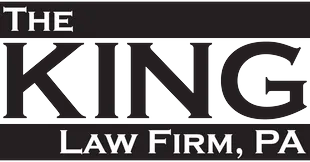Estate Planning And Deeds: What You Should Know
A deed is a small piece of paper with big importance. Sometimes called a title, a deed reflects your ownership interest in a property. There are numerous types of deeds and different types of ownership interests, all of which could have profound implications on your estate plan.
At The King Firm, PA, our attorneys are well-equipped to help you with all of your estate planning and probate matters. They are particularly well suited to deed issues in estate planning as our founding attorney is also a real estate agent with keen insight into real property issues. Clients across Tampa Bay and St. Petersburg turn to our lawyers because of their established skills and reputations in managing real estate and estate planning issues.
When you hire our firm, our attorneys will look at your current property title or deed to determine what your ownership interest is and provide guidance on ways to smoothly pass your property to your intended heirs through your estate plan.
The Importance Of Properly Prepared Deeds
Having a deed properly prepared is crucial. Unfortunately, many deeds – particularly quitclaim deeds – are prepared by property owners who don’t know what they’re doing. The deeds often contain errors that aren’t discovered until after the original property owner has passed away.
Things can become even more complicated if a property has more than one owner. Florida law allows for multiple ownership types (such as tenants in common, joint tenants with rights of survivorship, etc.), and each ownership type can create its own complications.
When you work with our firm, one of our experienced attorneys will inspect your deed (or deeds) to ensure that it is set up in a way that aligns with what you were expecting and intended for the property. If a change is required and legally permissible, we will help you enact it.
Understanding Deeds And Tax Obligations
If you plan to bequeath real property as part of your estate plan, you will need to consider property tax obligations. One error our attorneys have seen many times is clients assuming taxes will remain static. If your taxes have been low because you have lived there for a long time, things could change when the property changes ownership. It could be reassessed to current value and taxes could increase.
Another common problem is how the deeds themselves can impact tax obligations. As mentioned above, many homeowners create handwritten quitclaim deeds as a way to save money upfront. They fail to realize, however, that those deeds may end up costing thousands of dollars for their heirs due to inheritance and capital gains taxes.
As you create your estate plan, our attorneys can work with you to make sure that your property tax bill does not get reassessed so that you can continue to ensure the benefits of your long-standing homestead as well as make sure that your inheriting beneficiaries get the best possible tax advantage through the mechanisms that we employ with respect to the property transfers.
How To Convey A Property Into A Trust
One of the major tasks that our attorneys regularly undertake for clients is moving their property into trusts during the estate planning process. Without taking this important step, the trust you set up as part of your estate plan will not do the work it is intended to do. If you are utilizing a trust as part of your estate planning strategy, getting the real property properly deeded into that trust and properly recorded will be integral to making sure that the property avoids probate and ultimately gets into the hands of the intended beneficiaries.
Lady Bird – Life Estate Deeds
Another issue that people have with property and estate planning is how to more easily transfer their homes to their heirs. A Lady Bird deed, also known as a life estate deed, is one way to do that.
A life estate deed is a conveyance where party A conveys property to party B for life. The deed also states that when party B dies, the property goes to party C. The property belongs to party B only for their lifetime. Party B does not have the ability to mortgage it or leave it to a beneficiary of their choice.
Consider the following example. Grandma owns a house and wants her son to have a place to live. However, she doesn’t think he’s very responsible and she doesn’t want him to squander it. She ultimately wants the house to go to her granddaughter. To achieve this, she may convey a life estate deed to her son that he can live there for the rest of his life but he wouldn’t be able to mortgage or sell it. He is the life tenant. When he dies, the house goes to the granddaughter.
A lady bird deed is a type of enhanced life estate deed where the grantor retains the right to change beneficiaries, sell the property, mortgage the property or make other changes.
Efficiency And Effectiveness
At The King Firm, PA, our lawyers’ goals are determining fast, working solutions to your probate and estate planning concerns. They can provide you with a knowledgeable and thorough analysis of your estate planning goals and come up with viable solutions that will ensure a favorable outcome for you and your heirs.
Call for a free consultation today at 888-712-4771 or send us an email using this online form.

